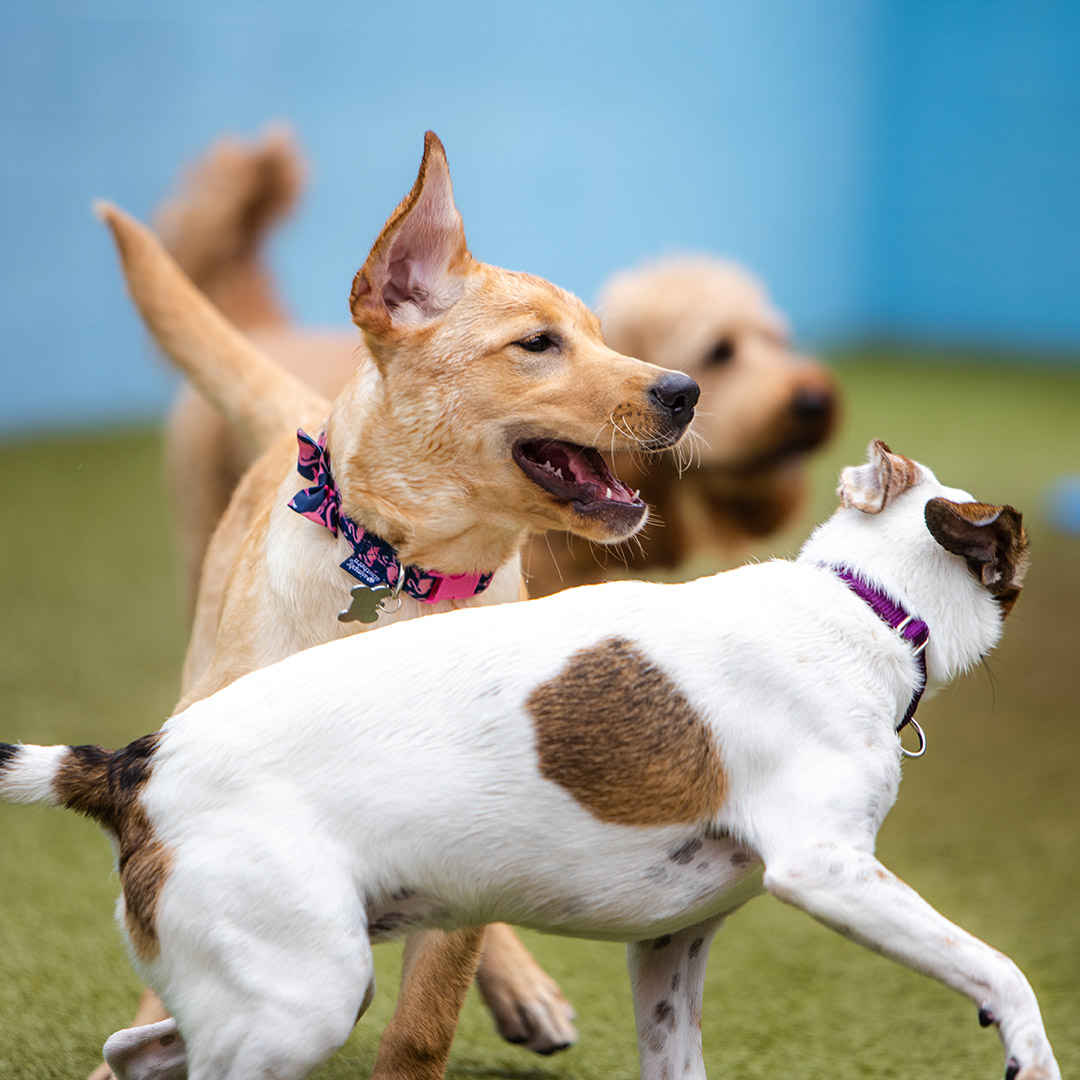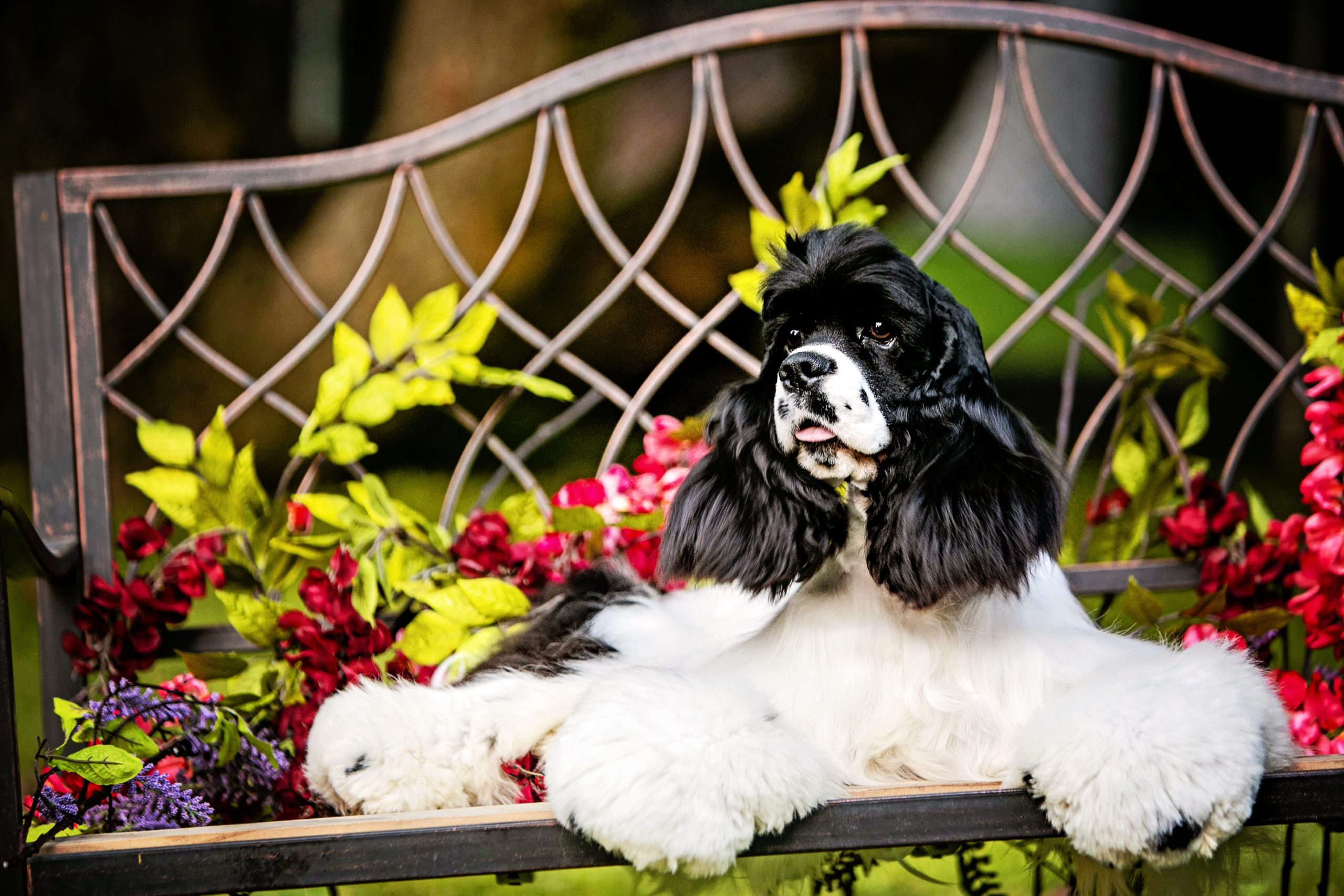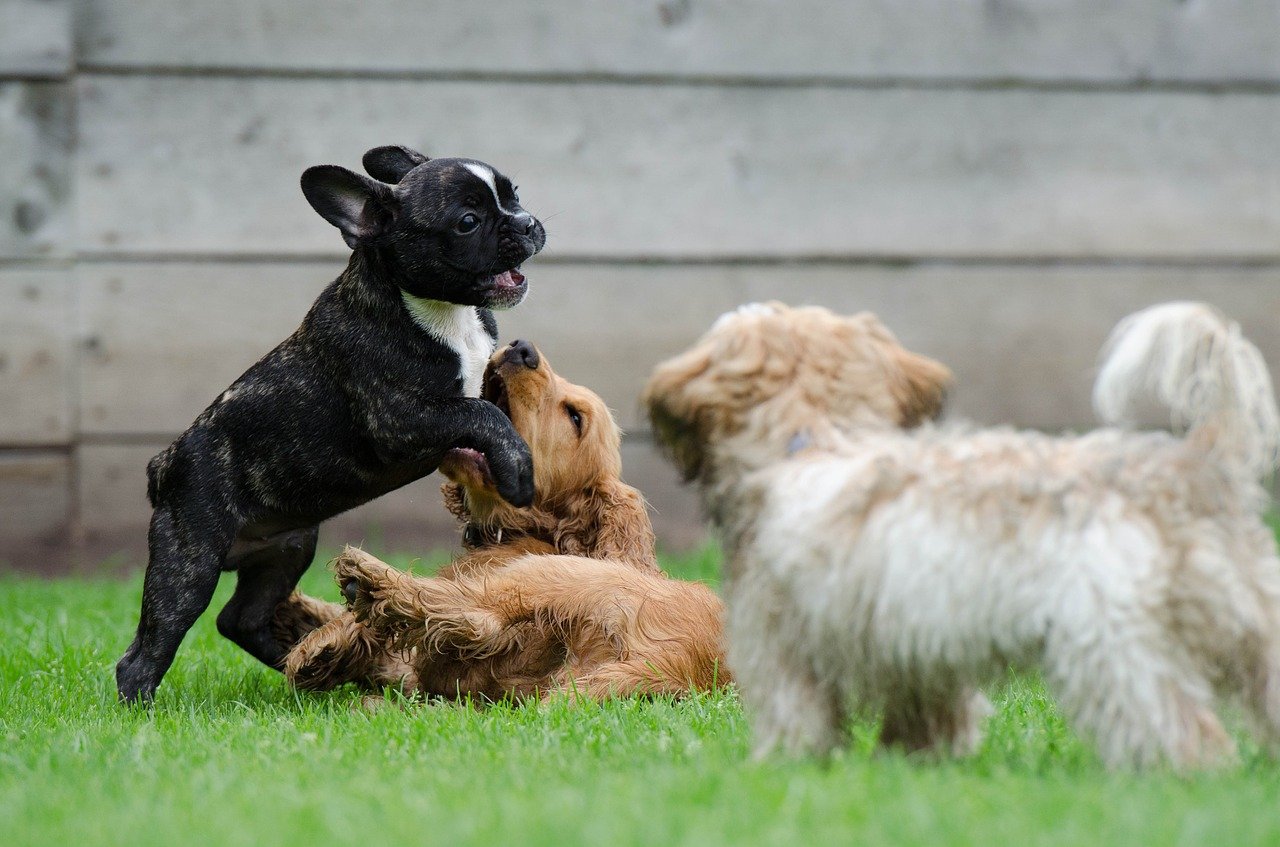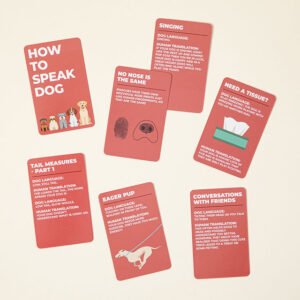Dog daycare can be a great place for your pet. It offers a chance for dogs to interact with other dogs and people. So let’s read: Is Dog Daycare Good for Socialization?
Socialization is key for a dog’s happiness and behavior. Many pet owners wonder if dog daycare is a good option for this. At a daycare, dogs can play and learn important social skills. They experience different environments and meet new friends.
This can help reduce anxiety and improve their confidence. In this blog post, we will explore the benefits of dog daycare for socialization. We will also discuss what to look for in a quality daycare. Understanding these factors can help you decide if dog daycare is right for your furry friend.
Table of Contents
The Rise Of Dog Daycare Services
Dog daycare services have become popular in recent years. Many pet owners seek safe places for their dogs. These facilities offer playtime, care, and socialization. This growth reflects changing lifestyles and a greater focus on pet well-being.
Popularity And Growth
Dog daycare services are now common in many cities. The demand for these services has increased. People work long hours and need reliable care for their pets.
Statistics show a steady rise in the number of daycare facilities:
| Year | Number of Facilities | Percentage Growth |
|---|---|---|
| 2018 | 5,000 | 10% |
| 2019 | 5,500 | 10% |
| 2020 | 6,200 | 12% |
| 2021 | 7,000 | 13% |
| 2022 | 8,000 | 14% |
This table shows that more people are choosing daycare for their dogs.
Variety Of Services Offered
Dog daycare facilities offer many services. These services cater to different needs. Here are some common options:
- Playgroups with other dogs
- Individual attention from staff
- Training sessions
- Grooming services
- Outdoor activities
Each daycare may provide unique features. Look for options that fit your dog’s needs. Socialization is a key benefit of these services. Dogs learn to interact with others in a safe environment. This can help reduce behavioral issues at home.
Socialization Benefits For Dogs
Dog daycare can greatly help with your dog’s social skills. Socialization is key for a happy and healthy dog. It helps dogs learn how to interact with others. This includes both dogs and humans. Proper socialization can reduce fear and anxiety in new situations.
Importance Of Social Skills
Social skills are essential for dogs. They help dogs communicate effectively. Good social skills can:
- Reduce aggression towards other dogs.
- Decrease fear of new environments.
- Improve overall behavior at home.
Dogs that lack social skills may struggle in many situations. They may become anxious or aggressive. Dog daycare provides a safe space for dogs to learn these skills.
Interaction With Other Dogs
Interaction with other dogs is crucial for development. Daycare allows dogs to meet many different breeds. Here are some benefits of interacting with other dogs:
| Benefit | Description |
|---|---|
| Play Skills | Dogs learn how to play nicely with others. |
| Body Language | Dogs understand signals from fellow canines. |
| Conflict Resolution | Dogs learn to solve problems without fighting. |
Regular interactions keep dogs active and engaged. This is key for their mental health. Overall, dog daycare provides many opportunities for dogs to socialize.
Evaluating Dog Daycare Facilities
Choosing a dog daycare is important for your pet’s socialization. A good facility can help your dog learn to interact well with others. Evaluating daycare options carefully ensures your dog’s safety and happiness.
Safety And Cleanliness Standards
Safety is a top priority in dog daycare facilities. You should check the following:
- Regular cleaning schedules
- Secure fencing and gates
- Emergency protocols in place
- Proper ventilation and hygiene practices
Look for facilities that use non-toxic cleaning supplies. A clean environment reduces the risk of illness. Ensure the area is free from hazards like sharp objects.
| Safety Standard | Description |
|---|---|
| Fencing | Strong and high enough to prevent escapes |
| Emergency Procedures | Clear plans for handling injuries or accidents |
| Hygiene Practices | Regular cleaning and disinfection of play areas |
Staff Qualifications
The staff’s experience matters greatly. Trained staff can manage dog behaviors effectively. Look for the following qualifications:
- Certification in dog training or behavior
- First aid and CPR training for pets
- Experience with various dog breeds
Friendly and knowledgeable staff create a positive environment. They should understand dog body language and signs of stress. Ask about staff-to-dog ratios. A low ratio ensures each dog gets attention.
Visit the facility and observe interactions. Staff should engage positively with the dogs. They should respond calmly to any issues that arise.

Credit: luckydogbarkandbrew.com
Potential Downsides To Consider
Dog daycare can offer great socialization. Yet, it comes with some downsides. It is essential to know these potential risks. Understanding them helps you make informed decisions.
Risk Of Stress And Overstimulation
Not all dogs thrive in daycare settings. Some may feel stressed or overwhelmed. Here are some signs of stress:
- Excessive barking
- Hiding or cowering
- Refusing to play
- Loss of appetite
Overstimulation can lead to behavioral issues. Dogs may become anxious or aggressive. This can affect their social skills. Owners should monitor their dog’s behavior closely.
Health Concerns And Disease Transmission
Dog daycare can expose pets to illnesses. Many dogs in one place increases the risk. Common health concerns include:
| Disease | Symptoms | Prevention |
|---|---|---|
| kennel cough | Coughing, sneezing, nasal discharge | Vaccination, good hygiene |
| Parvovirus | Vomiting, diarrhea, lethargy | Vaccination, avoid sick dogs |
| Canine influenza | Fever, coughing, runny nose | Vaccination, isolate sick dogs |
Regular vaccinations are crucial. Keeping your dog healthy helps protect others too. Always check if the daycare follows safety protocols.
Personalized Attention Vs. Group Play
Choosing between personalized attention and group play is important for your dog. Each option offers unique benefits. Understanding these can help you make the right choice for your furry friend.
Assessing Your Dog’s Individual Needs
Every dog has different needs. Some dogs thrive in a one-on-one setting. Others enjoy the energy of group play. Here are some factors to consider:
- Temperament: Is your dog shy or outgoing?
- Age: Young puppies may need more individual attention.
- Energy Level: High-energy dogs might enjoy group play.
- Previous Experiences: Has your dog been in daycare before?
Assess these traits to find the best fit. A personalized approach may help shy dogs gain confidence. Group play can benefit social dogs by enhancing their skills.
Pros And Cons Of Group Dynamics
| Pros | Cons |
|---|---|
|
|
Group play offers great benefits. Dogs learn to interact with others. They exercise and play together. Yet, group dynamics can be challenging. Some dogs may feel stressed. Others might not get enough attention. Knowing your dog’s personality helps you decide.
Success Stories And Testimonials
Many pet owners share their positive experiences with dog daycare. These stories highlight how daycare helps dogs socialize better. Let’s explore some success stories and feedback from owners.
Positive Impact Cases
Here are a few real-life examples of dogs thriving in daycare:
- Max: A shy Labrador mix. After three months at daycare, he became more confident and playful.
- Luna: A nervous rescue dog. She learned to interact with other dogs. Now she enjoys playtime and makes new friends.
- Buddy: A high-energy Beagle. Dog daycare helped him burn off energy. He is calmer at home now.
Owner Observations And Feedback
Many owners notice changes in their dogs. Here are some common observations:
| Owner Name | Dog Name | Feedback |
|---|---|---|
| Sarah | Charlie | Charlie is more social and less anxious. |
| Mike | Rex | Rex has made friends and loves going to daycare. |
| Emily | Bella | Bella is happier and more playful since daycare. |
These stories show how dog daycare improves social skills. Owners appreciate the positive changes in their pets.
Alternatives To Dog Daycare
Dog daycare offers great socialization for pets. Some owners may seek other options. These alternatives can provide social interaction. Each choice has benefits. Find what suits your dog best.
Dog Walkers And Pet Sitters
Dog walkers and pet sitters are great alternatives. They provide personal attention. These options help your dog stay active.
- Dog Walkers: They take your dog on walks.
- Pet Sitters: They care for your dog at home.
Both options promote socialization. Your dog meets new people. They may also encounter other dogs during walks. This can build confidence and reduce anxiety.
Socialization Through Training Classes
Training classes offer structured socialization. Dogs learn commands and social skills. They interact with other dogs and people.
| Class Type | Benefits |
|---|---|
| Puppy Classes | Teach basic commands and social skills. |
| Obedience Classes | Strengthen behavior and focus. |
| Agility Classes | Encourage physical activity and confidence. |
Training classes help your dog learn manners. This can reduce behavioral issues. Socialization through training is effective and fun.

Credit: cuttinbluefarms.com
Making The Right Choice For Your Dog
Choosing a dog daycare can be a big decision. It impacts your dog’s social life and well-being. You want a place that fits your dog’s needs. Let’s explore how to make the best choice.
Understanding Your Dog’s Personality
Every dog has its own personality. Some are friendly and outgoing. Others may be shy or anxious. Understanding your dog’s traits helps in selecting the right daycare.
- Outgoing dogs: They thrive in busy environments. They enjoy playing with other dogs.
- Shy dogs: They may need a quieter space. Look for smaller groups.
- Active dogs: They require lots of playtime. Choose a daycare with plenty of activities.
- Older dogs: They may prefer a calm environment. A slower pace is often better.
Weighing The Benefits Against The Risks
Dog daycare offers many benefits. Socialization is one of the key advantages. Dogs learn to interact with others. This can reduce behavioral problems at home.
| Benefits | Risks |
|---|---|
| Improved social skills | Possible aggressive behavior |
| Physical exercise | Injury from rough play |
| Reduced separation anxiety | Exposure to illness |
| Increased happiness | Not all dogs adapt well |
Assess these factors carefully. Talk to daycare staff about their methods. Ask how they handle different personalities. This ensures a good fit for your dog.
Expert Insights On Dog Socialization
Understanding dog socialization is crucial for pet owners. Experts share valuable insights. They guide us on how dog daycare can help.
Veterinarian Recommendations
Veterinarians emphasize the importance of socialization. They believe it affects a dog’s behavior and health.
- Early Socialization: Puppies need exposure to different environments.
- Positive Experiences: Daycare provides safe interactions with other dogs.
- Reducing Anxiety: Socialization helps reduce fear and anxiety in dogs.
Regular playtime with other dogs builds confidence. Dogs learn to communicate and play appropriately. A vet might suggest daycare for dogs that struggle with social skills.
Professional Trainers’ Advice
Professional trainers also recognize the benefits of daycare. They see improvements in behavior through socialization.
- Structured Play: Daycare offers supervised play sessions.
- Learning Boundaries: Dogs learn to respect each other’s space.
- Behavioral Cues: Dogs pick up on social cues from playmates.
Trainers recommend finding a reputable daycare. Look for places with experienced staff. They ensure safe and positive experiences for all dogs. Socialization in daycare can lead to well-adjusted pets.
Integrating Daycare Into Your Dog’s Routine
Adding daycare to your dog’s routine can bring many benefits. It can help your dog socialize with other dogs. This is important for their happiness and health. Following a few simple steps can make this transition smooth. Let’s explore how to do this effectively.
Transitioning With Ease
Start slow. Introduce daycare gradually to avoid overwhelming your dog. Here are some tips:
- Visit the daycare first. Let your dog explore the space.
- Stay for a short time. Allow your dog to adjust.
- Gradually increase the duration. This helps your dog feel comfortable.
- Observe your dog’s behavior. Look for signs of stress or excitement.
Keep the first visits short. This will help your dog enjoy the experience. Once your dog is comfortable, you can extend their stay.
Maintaining Consistency And Balance
Consistency is key to a successful daycare routine. Dogs thrive on routine. Here are some strategies:
- Set a regular schedule. Choose specific days for daycare.
- Stick to the same drop-off and pick-up times. This creates familiarity.
- Monitor your dog’s energy levels. Adjust daycare frequency as needed.
- Include playtime at home. Balance daycare with home activities.
Keep an eye on your dog’s behavior. Are they happy and relaxed? Adjust the routine if needed. This will help ensure your dog enjoys their time at daycare.

Credit: www.houndslounge.com
Frequently Asked Questions
Is Dog Daycare Beneficial For Socialization?
Dog daycare is highly beneficial for socialization. It provides dogs with opportunities to interact with other dogs and people. This exposure helps them develop essential social skills. Early socialization can lead to reduced anxiety and behavioral issues. Regular interaction in a safe environment fosters confidence in your dog.
How Does Dog Daycare Improve Behavior?
Dog daycare can significantly improve a dog’s behavior. Regular interactions teach dogs proper social cues and boundaries. They learn to share space and toys with others. This environment helps reduce aggression and anxiety. Overall, consistent exposure leads to a well-adjusted and happier dog.
What Age Is Best For Dog Daycare?
The ideal age for dog daycare is between 3 to 6 months. Early exposure helps puppies learn vital social skills. However, older dogs can also benefit from daycare. It’s never too late to improve socialization. Consult with a daycare facility to find the best fit for your dog.
Can Daycare Reduce Separation Anxiety?
Yes, dog daycare can help reduce separation anxiety. By spending time with other dogs, your pet learns to cope with being apart from you. This social interaction provides mental stimulation and comfort. Over time, your dog may feel more secure and less anxious when left alone.
Conclusion
Dog daycare offers great benefits for socialization. Dogs learn how to play and interact with others. They develop important social skills in a safe environment. Regular visits can help reduce anxiety and behavior issues. Owners notice happier, more balanced pets.
Choosing the right daycare matters. Look for a place with experienced staff and plenty of space. A good daycare will support your dog’s needs. Overall, dog daycare can be a positive experience for your furry friend. Investing in their socialization leads to a happier life for both of you.



